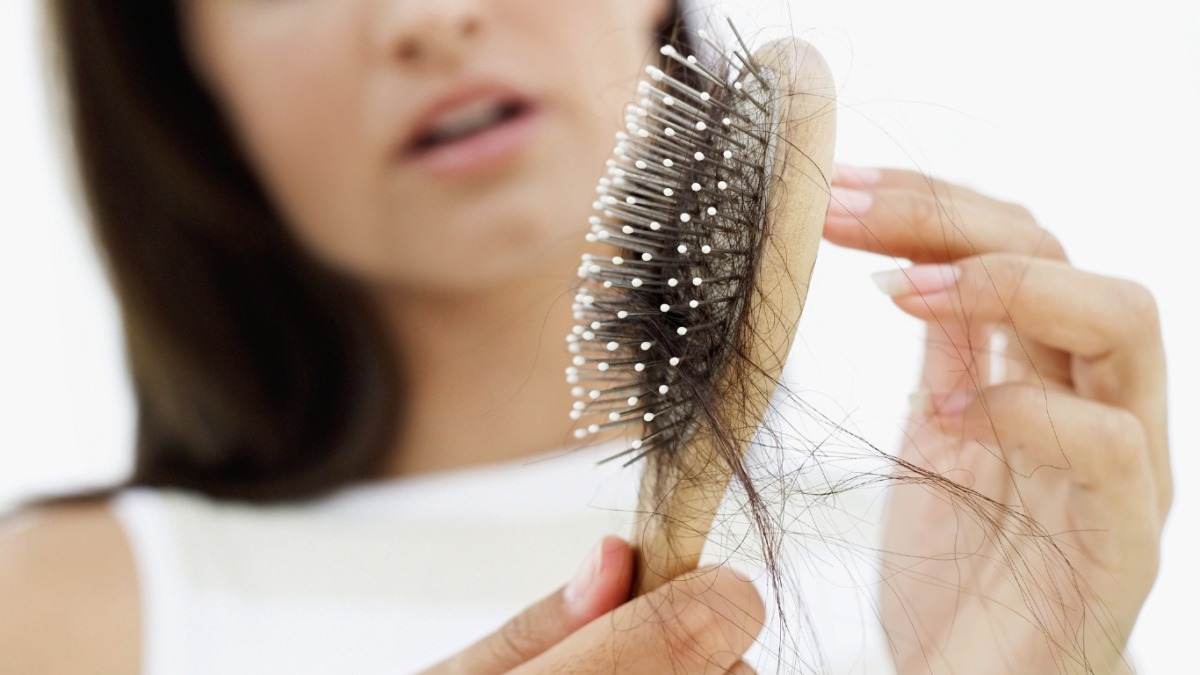Understanding and Managing Hair Loss During Menopause

As women, we go through a myriad of biological changes throughout our lifetime. Menopause, one of the significant phases of a woman’s life, is accompanied by several symptoms that can often be overwhelming. Among the numerous changes women face during this time, hair loss, although not as frequently discussed, is a common phenomenon.
The Biology Behind Menopause and Hair Loss
Hair loss or thinning during menopause is primarily attributed to hormonal changes. Hair growth is heavily influenced by hormones, and a decrease in estrogen and progesterone can lead to slower hair growth and thinner strands. Additionally, menopause causes an increase in androgens, a group of male hormones, which can shrink hair follicles, leading to hair loss.
Recognizing Hair Loss During Menopause
The first step in managing menopausal hair loss is recognizing it. Hair loss during menopause typically presents as a general thinning across the entire scalp rather than localized bald spots. You may notice more hair than usual in your brush, on your pillow, or in the drain after showering. The hair itself may also feel less dense and look less voluminous.
How to Manage Menopausal Hair Loss
Understanding that hair loss during menopause is a common occurrence can be reassuring, but that doesn’t mean you have to simply accept it. There are several steps you can take to manage hair loss and promote hair health during menopause:
- Balanced Diet: Eating a balanced diet rich in vitamins and minerals can help to support hair health. Specifically, nutrients like iron, vitamin D, B-vitamins, and omega-3 fatty acids are known to contribute to healthy hair.
- Regular Exercise: Regular physical activity can help to regulate hormones and promote overall health, which can positively affect your hair’s health.
- Avoid Damaging Hair Practices: Try to avoid hairstyles that pull tightly on the hair, excessive use of heat styling tools, and harsh chemical treatments that can damage the hair and lead to breakage.
- Gentle Hair Care Routine: Use a gentle, volumizing shampoo and a moisturizing conditioner to nourish your hair. Consider using a wide-toothed comb to prevent breakage.
- Stress Management: High levels of stress can contribute to hair loss. Techniques such as mindfulness, meditation, yoga, and deep breathing can help manage stress levels.
- Consult a Healthcare Professional: If you are finding your hair loss difficult to manage, it might be worth consulting a healthcare professional. They can provide personalized advice and may recommend treatments such as minoxidil (Rogaine), hormone replacement therapy, or other treatments as appropriate.
Embracing Change
Though hair loss during menopause can be unsettling, it’s essential to remember that menopause is a natural part of life – a transition, not a disease. In many ways, it’s a testament to our strength and resilience as women. However, it’s also important to remember that you’re not alone in this journey. Reach out to health professionals and support groups, who can provide you with valuable resources and reassurance.
Every woman’s experience with menopause is unique. Be patient with yourself, listen to your body, and seek support when needed. Remember, your worth is not defined by your hair or any physical change you go through during this transition. You are more than your menopause. You are a woman of wisdom, experience, and beauty – and nothing can take that away.
